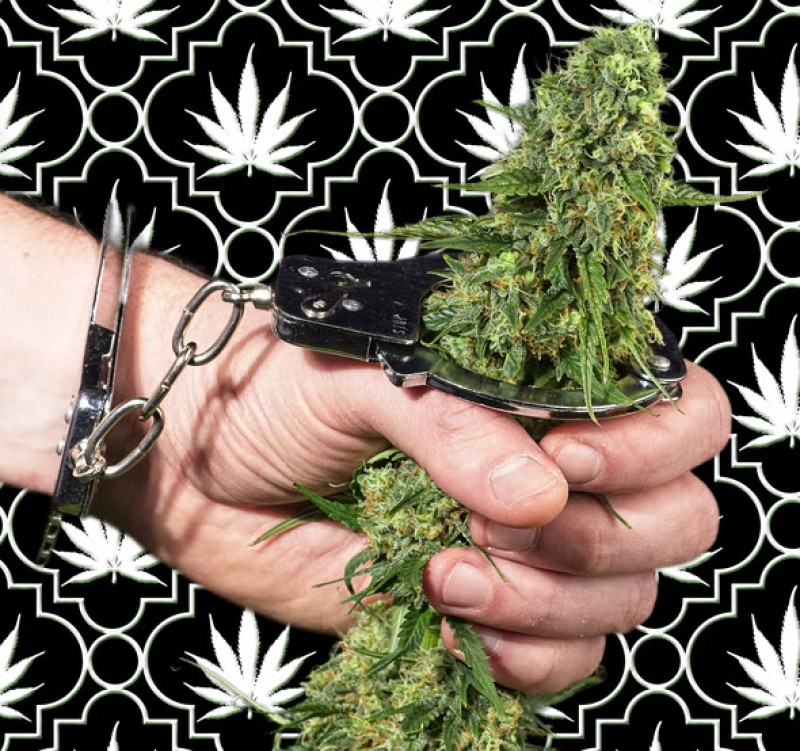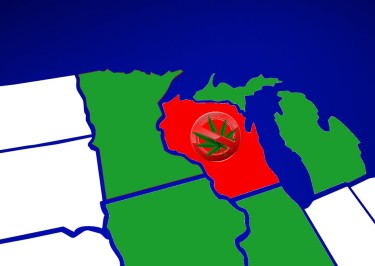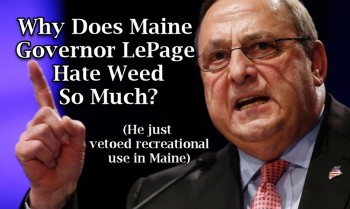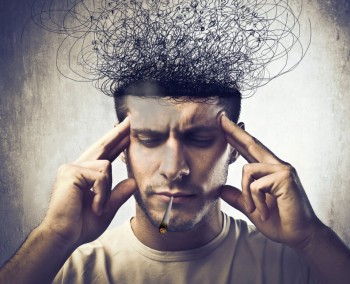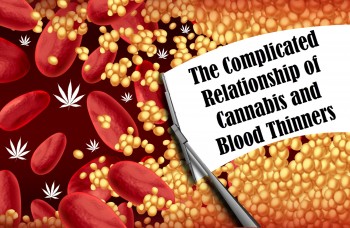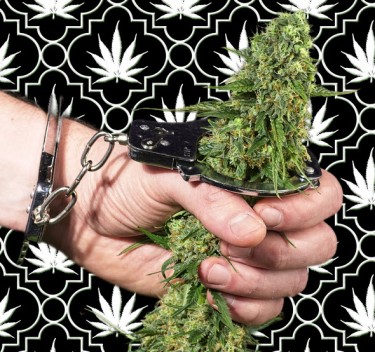
Why criminalization doesn’t curtail consumption
The spirit of prohibition is rooted in the desire to restrict individuals from accessing certain substances or engaging in particular activities deemed harmful or undesirable by those in power. At its core, prohibition is a paternalistic approach that employs the threat of severe consequences, often in the form of state-sanctioned violence, to discourage and punish those who dare to defy the established rules. If we were to remove the veneer of governmental authority from this equation, the true nature of prohibition would be laid bare as a hostile and coercive scenario, where the individual's autonomy is subjugated to the whims of the ruling class.
Proponents of prohibition argue that this looming threat of violence is a necessary evil, a means to an end in the quest to curtail consumption and send a clear message to impressionable youth that certain behaviors will not be tolerated. They claim that by instilling fear of legal repercussions, society can effectively deter individuals from engaging in prohibited activities, thereby protecting them from potential harm. "The law will punish you!" becomes the rallying cry of those who believe that the heavy hand of the state is the only way to maintain order and public health.
However, a recent Gallup poll has called into question the very foundation upon which the edifice of prohibition is built. The survey found that rates of marijuana use are nearly identical in states that have legalized the substance compared to those that continue to maintain its prohibition. This startling revelation suggests that criminalization has little impact on actually curbing consumption, challenging the long-held belief that the threat of punishment is an effective deterrent.
In light of this new evidence, it is time to ask ourselves: isn't there a better way? If prohibition fails to achieve its stated goal of reducing substance use, while simultaneously perpetuating a system of violence and oppression, should we not seek alternative approaches that prioritize harm reduction, education, and individual liberty? The spirit of prohibition may be deeply entrenched in our society, but the cracks in its foundation are beginning to show, inviting us to imagine a future where the individual's autonomy is respected and evidence-based policies prevail over fear-mongering and coercion.
A Closer Look at the Numbers
The recent Gallup poll on marijuana use in the United States has shed new light on the effectiveness, or lack thereof, of drug prohibition. The survey, which involved interviews with 6,386 U.S. adults from November 30, 2023, to December 8, 2023, found that rates of marijuana use are nearly identical in states that have legalized the substance compared to those that continue to maintain its prohibition. This finding strikes at the heart of the argument that criminalization is necessary to curb drug consumption.
According to the poll, one in 10 American adults reported using marijuana 10 or more times in the past month, while one in five admitted to using cannabis at least once during the same period. When broken down by state legal status, the data revealed that 9.7 percent of adults identify as regular cannabis consumers in states that have enacted legalization, compared to 8.6 percent in non-legal states. This narrow gap in consumption rates suggests that criminalization has little impact on deterring use among American adults.
The poll also examined marijuana use across different age groups and regions. Interestingly, there were no significant differences in consumption rates between adults aged 18-29, 30-39, and 40-49, with all three age groups averaging around 12 percent regular use. The survey accounted for the various methods of marijuana consumption, including smoking, vaping, and consuming edibles, ensuring a comprehensive assessment of use patterns.
Perhaps most striking is the finding that the West region, which includes states like California, Oregon, and Washington that have established adult-use cannabis markets, has a slightly lower usage rate (10 percent) compared to the Middle Atlantic region (11 percent), where only Pennsylvania has maintained prohibition for adult use. This data further undermines the notion that legalization leads to increased consumption.
The Gallup poll provides compelling evidence that the criminalization of drug use has little to no impact on actual consumption rates. As the debate surrounding drug policy continues to evolve, these findings should serve as a catalyst for policymakers to reevaluate the efficacy of prohibition and explore alternative approaches that prioritize public health, harm reduction, and individual liberty over punitive measures that have proven ineffective in curbing substance use. The data speaks for itself: it is time to abandon the failed war on drugs and embrace evidence-based strategies that address the root causes of substance abuse while respecting the autonomy of individuals.
Those who want to smoke, will smoke…
It's a simple truth that has been consistently demonstrated throughout the history of drug prohibition: those who want to consume substances will find a way to do so, regardless of the legal status or societal stigma attached to their chosen intoxicant. Even during the height of the drug war, when draconian policies and harsh punishments were the norm, consumption rates never significantly declined. In fact, they often remained stable or even spiked in response to the increased pressure from law enforcement, highlighting the futility of attempting to control human behavior through brute force and intimidation.
The reality is that if someone wants to get high, they can and will find a way to do so. It's a matter of networking and tapping into the right circles, and virtually anyone with a bit of determination and resourcefulness can gain access to illicit substances. Ironically, even playing into stereotypes can sometimes lead to success in this endeavor, as the black market thrives on the very prejudices and assumptions that society perpetuates.
But the larger point here is that drugs are an inextricable part of our society, woven into the fabric of human experience for millennia. From ancient rituals to modern-day experimentation, the desire to alter one's consciousness has been a constant throughout history. It's high time we recognize this reality and adjust our approach accordingly, rather than clinging to the misguided notion that we can somehow eradicate drug use through punishment and prohibition.
By keeping substances illegal, we create a host of other risks and problems that only serve to compound the harm associated with drug use. The unregulated nature of the black market means that users have no way of knowing the purity or potency of the substances they consume, leading to increased risk of overdose and other adverse health effects. Moreover, the criminalization of drug use perpetuates a cycle of stigma, marginalization, and incarceration that tears families and communities apart, while doing little to address the underlying causes of addiction and substance abuse.
It's time for a paradigm shift in how we approach drug policy. Rather than futilely attempting to eliminate drug use through prohibition, we must acknowledge that intoxication is a part of the human experience and work to mitigate the harms associated with it through evidence-based strategies rooted in public health and harm reduction. By decriminalizing substance use and treating it as a matter of personal choice and individual liberty, we can create a society that is more compassionate, more just, and ultimately safer for all. Because at the end of the day, those who wanna smoke, will smoke – and it's up to us to ensure that they can do so in a way that minimizes risk and maximizes well-being.
May the past remain past…
As we navigate the ever-shifting landscape of drug policy, it's crucial to remain vigilant and aware of the potential pitfalls that lie ahead. In recent years, I've noticed a polar shift from the left to the right, a trend that, while bearable for now, carries with it the risk of veering too far into the dangerous territory of the "drug war." It's important to remember that it was through the lens of the "polar-right" that prohibition first laid its roots, and we must be cautious not to repeat the mistakes of the past.
As the debate surrounding cannabis legalization continues to evolve, it's essential to scrutinize the policies being put forth and to recognize when they may not be in the best interest of the people. The proposed shift to Schedule-III, for example, is not the victory that many advocates have been fighting for. It's not the true legalization that the cannabis community seeks, but rather a half-measure that fails to address the fundamental issues at play.
The people who have fought tirelessly for cannabis reform want nothing less than the recognition of their fundamental human right to grow, cultivate, sell, and gift this plant as they would any other commodity, like tomatoes. They seek a world where the government respects their autonomy and trusts them to make informed decisions about their own well-being, without the need for excessive regulation or control.
Instead, what we're seeing is a government that seems intent on playing the pharmaceutical game, attempting to schedule cannabis in a way that would effectively remove it from the hands of the people and place it under the control of corporate interests. This is not the vision that the cannabis community has been fighting for, and it's crucial that we recognize this fact and push back against any attempts to subvert the will of the people.
As we move forward, let us hold fast to the hope that the past will remain in the past, that the dark days of prohibition will fade away into the annals of history, and that the institutions that have long kept the gates of progress closed will wither and crumble.
Let us work together to build a future where the autonomy and liberty of the individual are respected, where evidence-based policies prevail over fear and stigma, and where the harms of the drug war are finally laid to rest.
May we learn from the mistakes of the past and forge a new path forward, one that values compassion, understanding, and the fundamental rights of all people.
